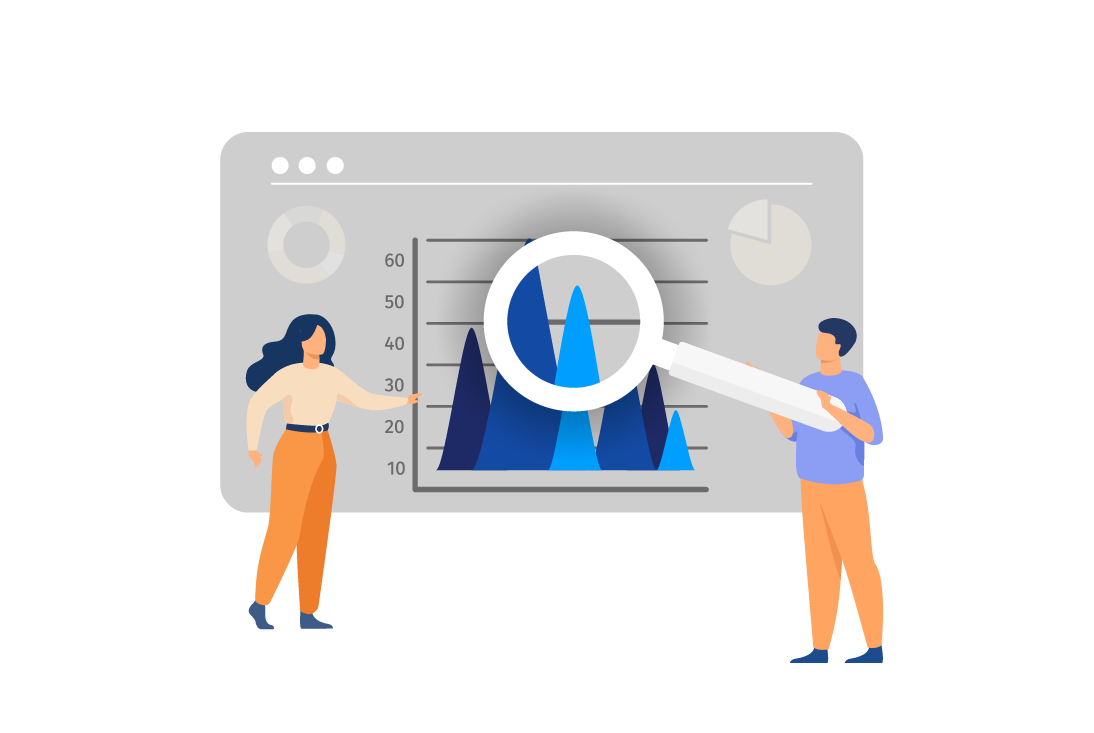THE IMPORTANCE OF OUTCOME MEASUREMENT IN LEARNING PROGRAMMES
Learning programmes play a vital role in the development and growth of individuals and organisations. But it’s not enough to simply implement impressive or popular training initiatives; what truly matters is the outcome they yield. Measuring the results of training can be a complex task, but it is essential for evaluating the effectiveness and value of learning programmes.
Why is Outcome Measurement significant?
Learning programmes are designed to improve skills, knowledge, and performance. By measuring the outcomes, you can determine whether your training initiatives are achieving the desired objectives and delivering a return on investment. Outcome measurement allows for evidence-based decision-making, identifying areas of success and areas that require improvement. It also helps in aligning learning programmes with business goals and demonstrating their impact on individual and organisational performance.
Our Learning experts recommend these Top Tips to boost your outcome measurement success:
Clearly Define Objectives: What specific knowledge, skills, or behaviours do you aim to develop in your participants? By having well-defined objectives, you can align your measurement strategies accordingly and ensure that you are measuring what truly matters.
Identify Key Metrics: Determine the key metrics that will help you assess the effectiveness of your learning programme. These metrics should be aligned with your defined objectives and should provide meaningful insights into the impact of the programme. For example, you may consider metrics such as participant satisfaction ratings, knowledge retention rates, skill improvement levels, or even business outcomes such as sales performance or customer satisfaction.
Leverage Technology: Make use of technology tools and platforms to streamline data collection, analysis, and reporting processes. Learning management systems (LMS) or online survey tools can help automate data collection, making it easier to gather and analyse large amounts of data efficiently. Technology can also provide real-time tracking and reporting capabilities, enabling you to monitor progress and make data-driven decisions promptly.
Foster Continuous Improvement: Evaluation is not a one-time event but an ongoing process. Embrace a culture of continuous improvement by regularly reviewing and analysing the data collected. Identify trends, patterns, and areas for improvement, and use these insights to refine your learning programme. Collaborate with stakeholders, including learners and subject matter experts, to gather feedback and incorporate their suggestions for enhancing the programme's effectiveness.
Choose Appropriate Data Collection Methods: Select data collection methods that are most suitable for capturing the desired information. This can include surveys, interviews, assessments, performance evaluations, or even observational data. Ensure that your data collection methods are reliable, valid, and aligned with the specific metrics you want to measure. Consider a combination of quantitative and qualitative data to gain a holistic understanding of the programme's impact.
How To Measure Learning Outcome Success
There are several models out there that can be used to measure learning outcome success.
Determining which model to use depends on several factors, including the nature of the learning programme, the goals and expectations of stakeholders, and the available resources for data collection and analysis. In many cases, you can employ a combination of these models to gain a comprehensive understanding of the impact and value of your learning programmes. ROE helps capture qualitative insights and stakeholder perspectives, ROI provides a quantitative measure of financial return, Brinkerhoff's Success Case Method focuses on identifying critical success factors, and The Kirkpatrick Method offers a multi-level evaluation framework. Deciding on which combination of models can be an onerous task however, and that’s where learning experts’ knowledge and recommendations are invaluable.
PHM Group Limited: Your Learning Measurement Support
At PHM Group Limited, we understand the importance of accurately measuring the outcomes of learning programmes. Our experienced learning team provides support and guidance to organisations seeking to measure the effectiveness of their training initiatives. We can help you identify the most suitable measurement models, develop data collection strategies, analyse the results, and make data-driven decisions to optimise your learning programmes. Whether you are looking to assess ROE, ROI, Brinkerhoff's Success Case Method, The Kirkpatrick Method, or a customised measurement approach, our team is here to assist you every step of the way.
Measuring the outcomes of learning programmes is crucial for evaluating their effectiveness and determining their value to individuals and organisations and it’s important to choose the right model or combination of models based on the unique goals and requirements of the programme. With the support of PHM Group Limited's learning team, you can navigate the complexities of outcome measurement and make informed decisions to enhance the effectiveness of your training initiatives.


